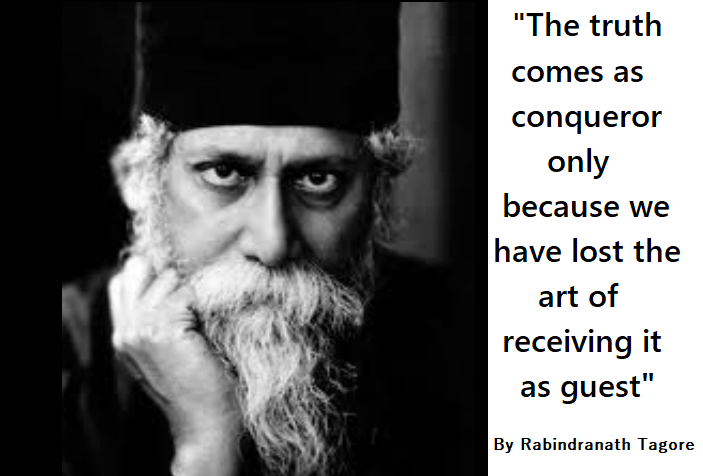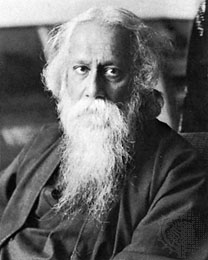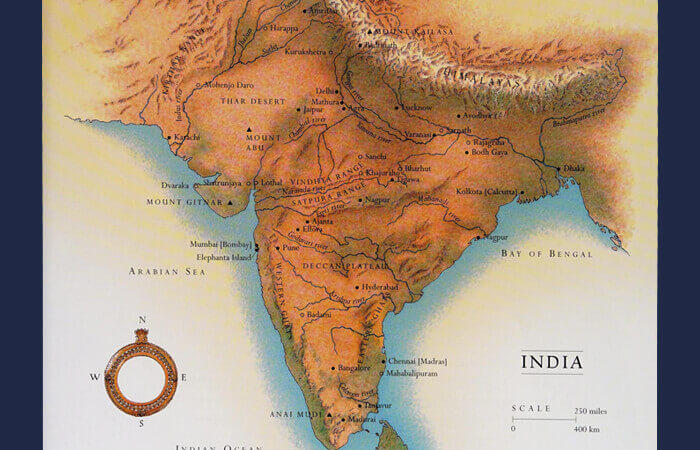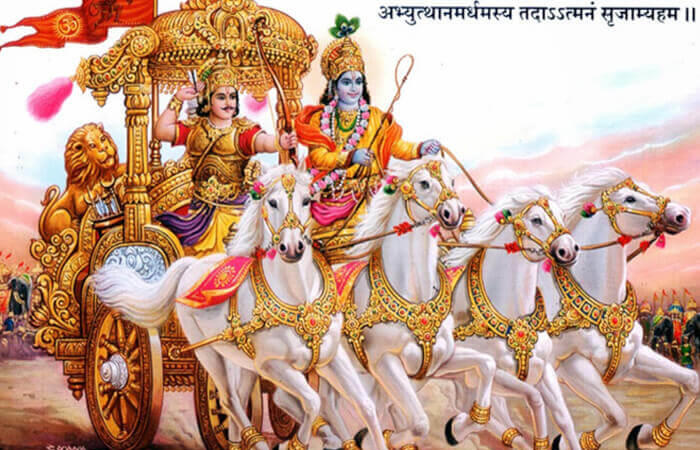Rabindranath Tagore – The Bard of Bengal

Rabindra Nath Tagore was one of the outstanding aesthetic thinkers of the contemporary world. His aesthetic thoughts were essentially idealistic. he was the first non-European to win the Nobel Prize in Literature in 1913.
His Birthday is celebrated as Rabindranath Tagore Jayanti which falls on the 25th May of the Bengali month of Boishakh. In Kolkata, it is popularly called Poncheeshe Boishakh and is celebrated ceremoniously and jauntiness all across West Bengal.
Early Life
Born on 7 May 1861 as Rabindranath Thakur in Calcutta to Debendranath Tagore (1817–1905) and Sarada Devi (1830–1875). Tagore was raised mostly by servants; his mother had died in his early childhood and his father traveled widely.
He was the youngest of fourteen sons. His family abounded with philosophers, writers, musicians, and people of science. Tagore’s oldest brother, Dwijendranath, was a respected philosopher and poet. Another brother, Satyendranath, was the first ethnically Indian member appointed to the elite and formerly all-white Indian Civil Service. Yet another brother, Jyotirindranath Tagore, was a talented musician, composer, and playwright.
Among his sisters, Swarnakumari Devi earned fame as a novelist in her own right. Jyotirindranath’s wife, Kadambari Devi — who was slightly older than Tagore — was a dear friend and a powerful influence on Tagore. Her abrupt suicide in 1884 left him distraught for years and left a profound mark on the emotional timbre of Tagore’s literary life.
Tagore largely avoided classroom schooling and preferred to roam the manor or nearby Bolpur and Panihati, idylls which the family visited. His brother Hemendranath tutored and physically conditioned him—by having him swim the Ganges or trek through hills, by gymnastics, and by practicing judo and wrestling. He learned drawing, anatomy, geography and history, literature, mathematics, Sanskrit, and English—his least favorite subject.

Travels
In early October 1878, Tagore traveled to England with the intent of becoming a barrister and left England after one year however he studies English at Brighton school. However, Tagore neither fully embraced English strictures nor his family’s traditionally strict Hindu religious observances either in his life or his art, choosing instead to pick the best from both realms of experience. In November 1912 Tagore began touring the United States and the United Kingdom, he lectured in Japan and the United States.
He denounced nationalism and wrote an essay “Nationalism in India” which was scorned and praised. He traveled extensively he visited Mexico, Bali, Java, Kuala Lumpur, Malacca, Penang, Siam, and Singapore.
Works
He was widely known for his poetry and he wrote novels, essays, short stories, travelogues, dramas, and thousands of songs.
Tagore’s literary reputation is disproportionately influenced very much by regard for his poetry. Of Tagore’s prose, his short stories are perhaps most highly regarded; indeed, he is credited with originating the Bengali-language version of the genre. His works are frequently noted for their rhythmic, optimistic, and lyrical nature. However, such stories mostly borrow from the deceptively simple subject matter — the lives of ordinary people.
With many of Tagore’s stories, there has been more than one translation by more than one translator. For instance, The Supreme Night, One Night, and A Single Night are all translations of the same story. Tagore wrote around 2,230 songs. His artwork was exhibited across Europe, Russia, and the United States in 1930. is painting style was very individual, characterized by simple bold forms and rhythmic quality, and later served to inspire many modern Indian artists.
Suggested Read: Jana Gana Mana
Nobel Prize
The Nobel Prize in Literature 1913 was awarded to Rabindranath Tagore “because of his profoundly sensitive, fresh and beautiful verse, by which, with consummate skill, he has made his poetic thought, expressed in his own English words, a part of the literature of the West”.
The truth comes as a conqueror only because we have lost the art of receiving it as a guest. By Rabindranath Tagore
Suggested Read: Bengali Language






